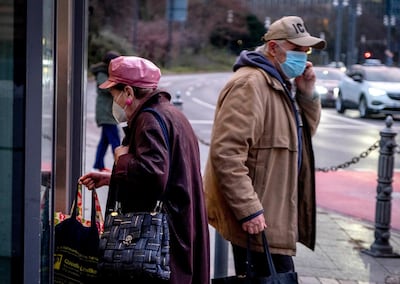Last week I took my parents for their second round of vaccination against Covid-19. In the UK it is currently targeted at the elderly – people over 70. While waiting for our turn, it struck me how many adult children had brought their elderly and frail parents to a vast, ventilated hall in the middle of nowhere on a dark, winter afternoon, to protect them from the pandemic.
There was so much love on display. The sense of team effort from all the children was evident. It was clear how much they – all of us waiting there – valued our elderly parents. While they need looking after, the people of an older generation still bring so much value to our families and communities in ways which we must preserve.
Yet, in the backdrop to these stories, there is sometimes an unnecessarily hurtful way in which some people in certain societies talk about and act towards older people. This may be less apparent in societies the Middle East and Asia have a long tradition of showing respect to parents and grandparents. They may often live part of a joint family set up, or multiple generations living under one roof, which offers a form of elder care. Other nations like the UK take a more nuclear family approach. And with the increasing longevity of life and the complications of care, it is worth preparing in advance to ensure problematic attitudes seen elsewhere do not take root.
This week, finally, US President Joe Biden was inaugurated. Much of his candidacy was surrounded by talk of whether he was too old to be president. Former US President Donald Trump often used the tactic of age to belittle him, calling the President ‘sleepy Joe’.

Satirists have a habit of picking on one characteristic of a leader. But to use the easy crutch of age, and that some people – even apart from Mr Trump – used his 78 years to try to diminish the accomplishments of Mr Biden, seems unforgivable. Every age has its challenges and strengths. And every leader has their personal, physical and health challenges.
The pandemic has brought out some ugly attitudes towards the elderly in the UK. In discussions about death rates, people point to median death ages and those of people in their 80s. Early in the pandemic, deaths of the elderly in care homes were diminished, as if to mean – they were old, they died, so what? As though our elderly are a meaningless burden. This couldn’t be farther from the truth.
The elderly are repositories of institutional memory, the foundations of our identities. They bind younger generations to society and give them a sense of place and purpose. They are our mums and dads, our uncles and aunts. And their value is not just in relation to us, but very much inherent in their own identities.
Often, the elderly are in the best phase of their life. They finally have the time and the resources to do things they have waited to do for decades. Once the mortgage is paid and the children are grown, they talk often not about retirement or about giving up, but living life in ways they see fit, and for themselves.
The paradox is in the way certain societies deem the elderly as an irrelevant demographic, choosing instead to glorify youth. And yet science tells us that more of us will be living longer lives. An ever increasing proportion of the world's population will be ‘old’, as the global population over 85 is set to grow. So diminishing the elderly isn’t just discriminatory and small-minded, it is an unhealthy attitude for us all because we will be there one day too.
There are far too many caricatures of old age, some that we perpetuate without even realising it. In 2020, as the Covid-19 crisis started, attitudes towards the elderly came under the spotlight. The UK Centre for Better Ageing issued a report called “Doddery but Dear?”, showing how older people are widely mocked and patronised. Older people are seen as incompetent, hostile or a burden on others.
Underpinning such distasteful stereotypes is the idea that old age is a singular homogenous state. Some people club any age group upwards of 50 years as old. But doing this restricts the possibilities and understanding of age, aptitude, people's individual fitness and varied life experiences. In fact, what might have been considered 'old' in the past – say people's 30s and 40s and even 50s – is now often considered the prime of life.
Ageism is a combination of prejudices. And our attitude to age reflects in the language we use when we talk about older people.

In the UK, the Stop Ageism campaign prioritises changing how we talk about age. A first step? Changing our attitudes. “Why is it still acceptable to use outright discriminatory terms for older people in society?” asks the campaign. They say what needs to be done is to “define people by who they really are and the value they bring.”
That’s the key – we seem to think that after 50 or 60, our ‘elderly’ are consigned to the periphery of society. As I sat in the vaccination hall with my parents, I saw how on a human level, our hearts burst with love for those further along life’s journey than us. That’s what we need to achieve at a societal level. And until we do, we should all be raging against age discrimination and checking people when they use ageist terminology.
Shelina Janmohamed is an author and a culture columnist for The National


